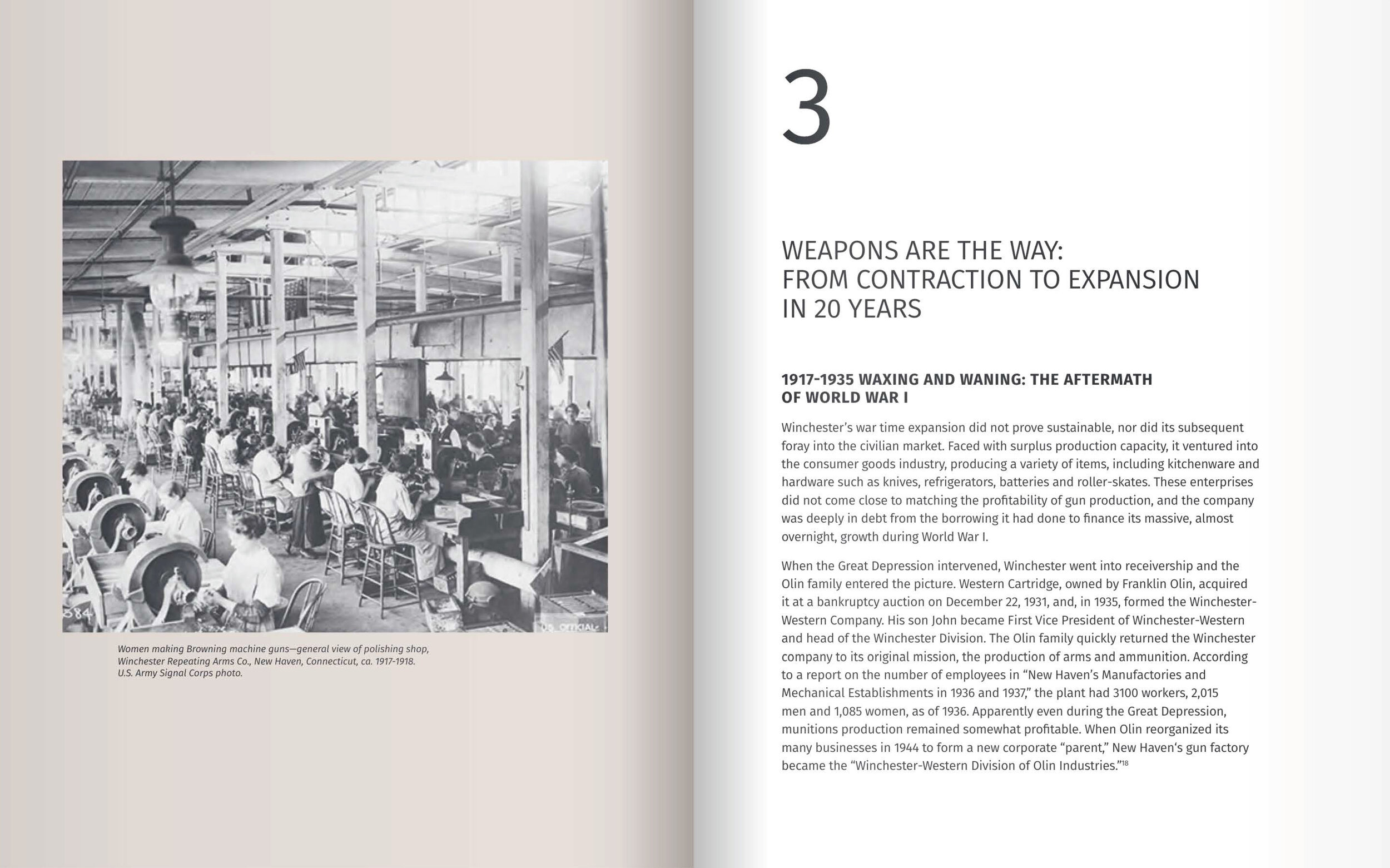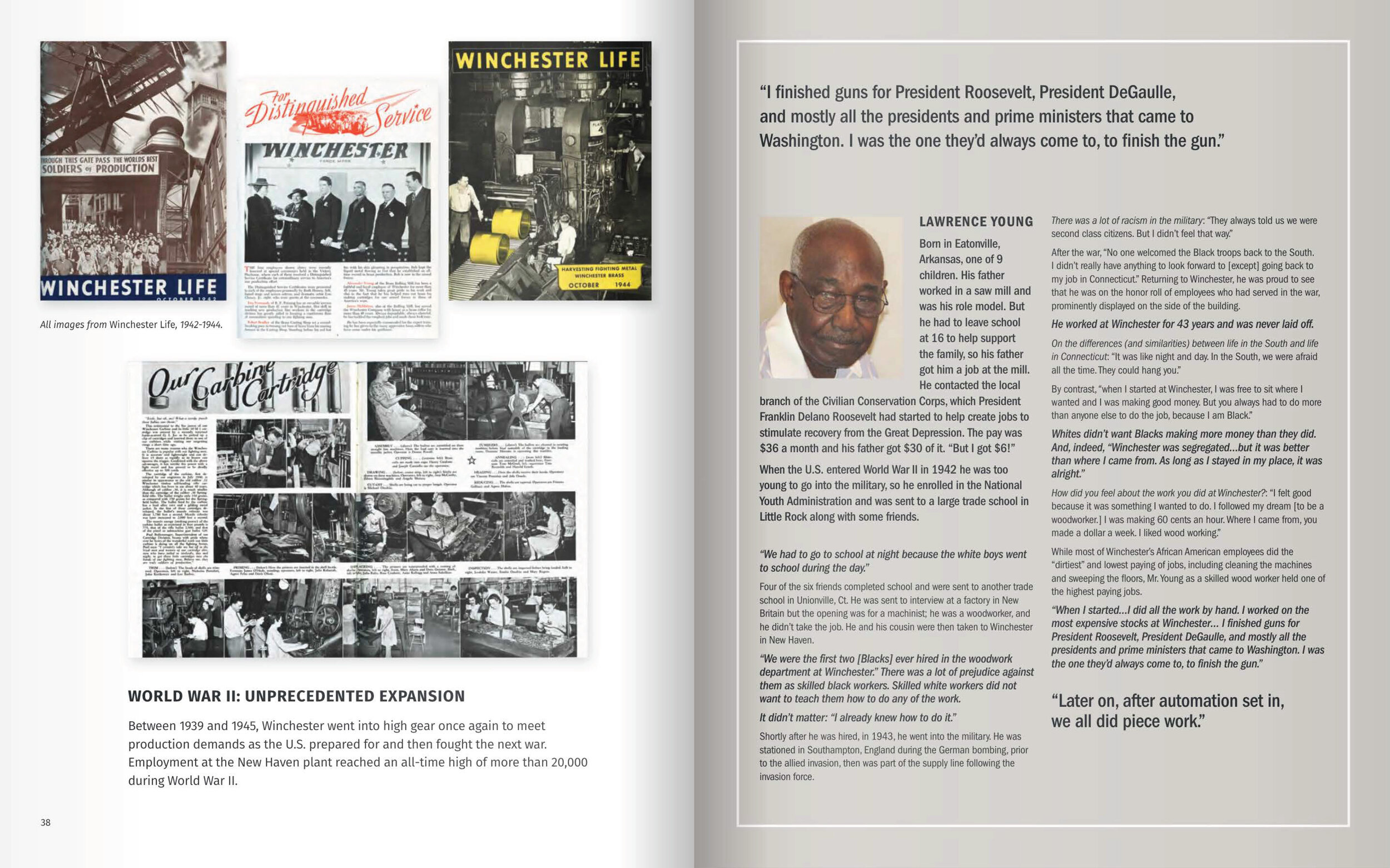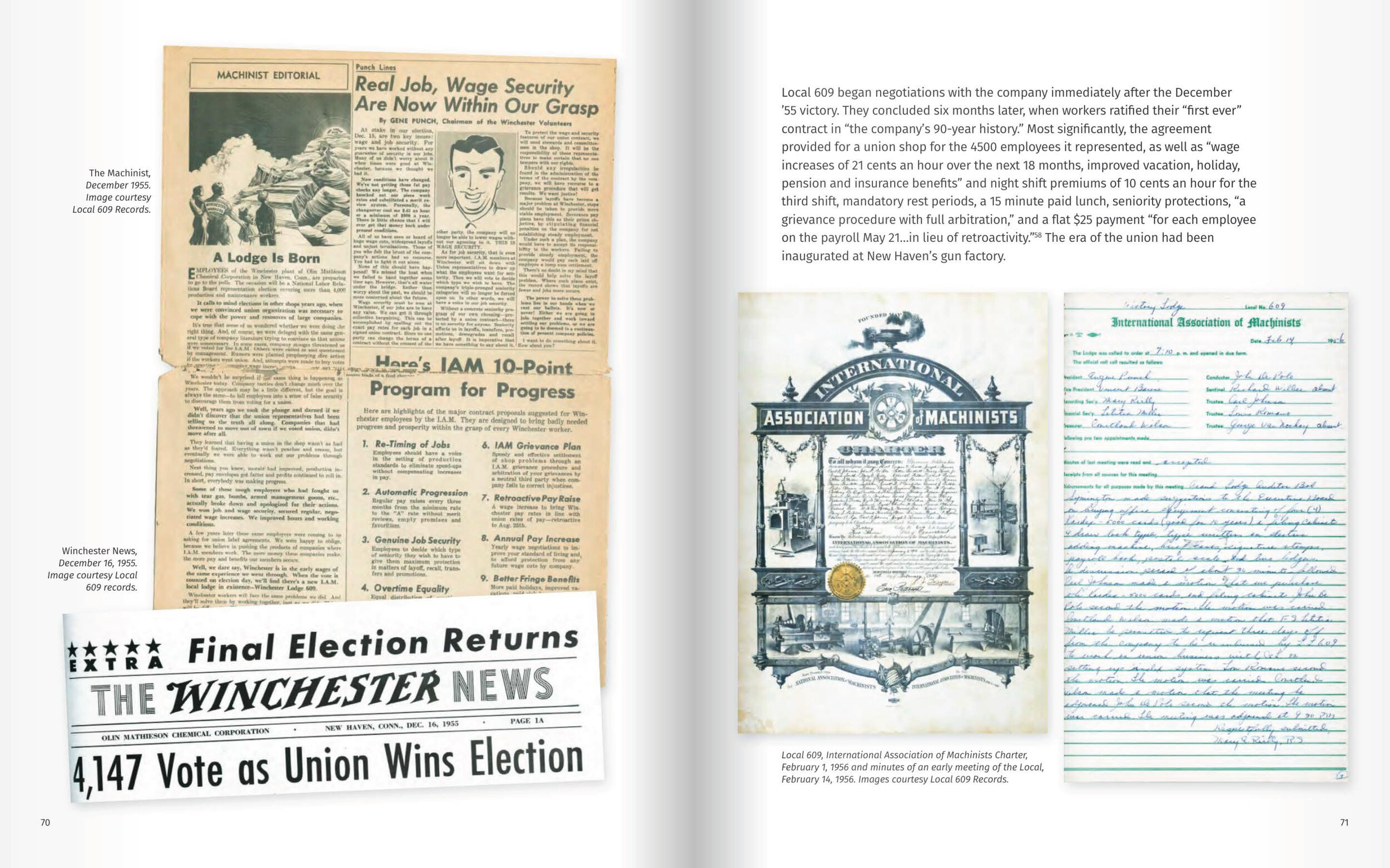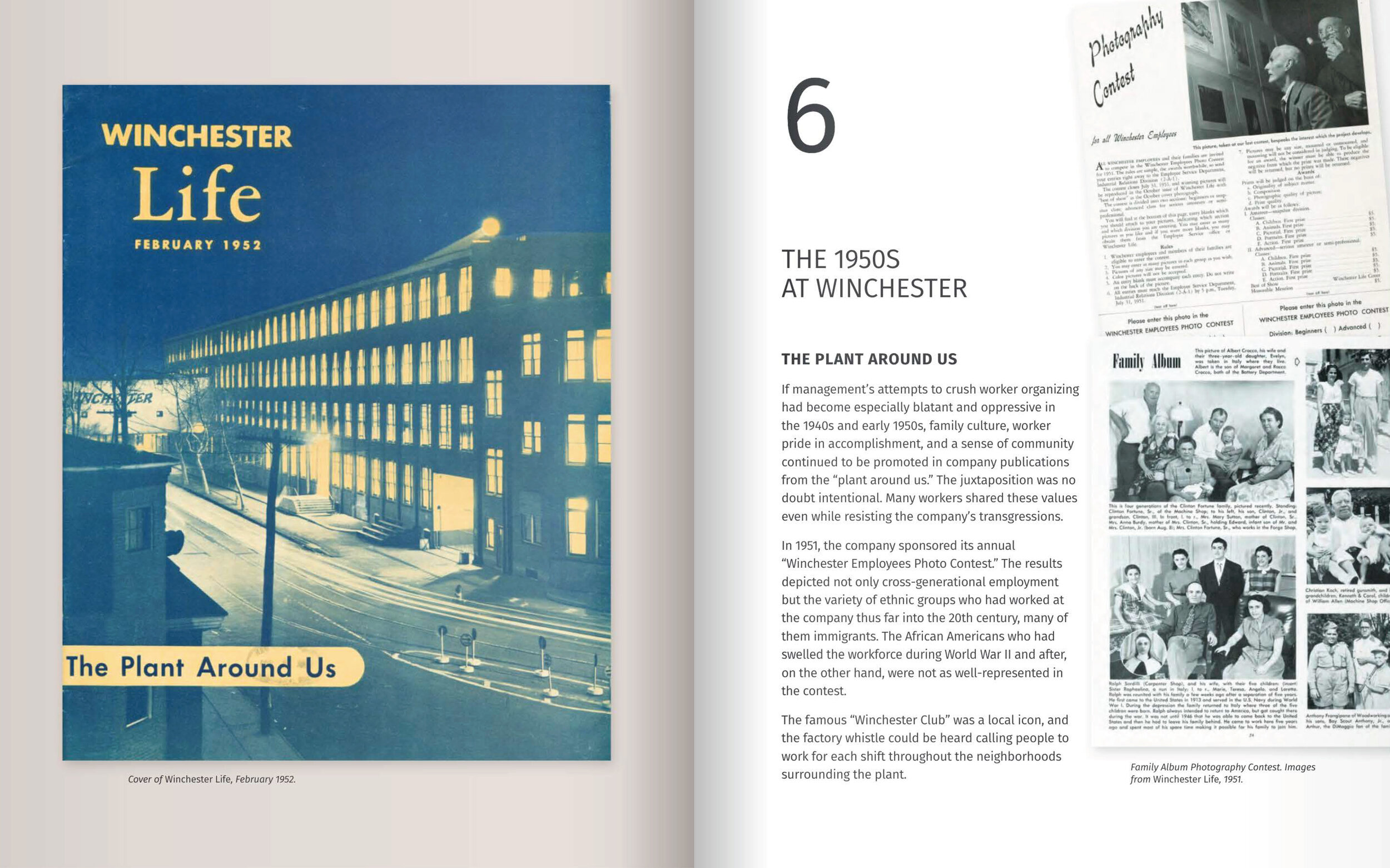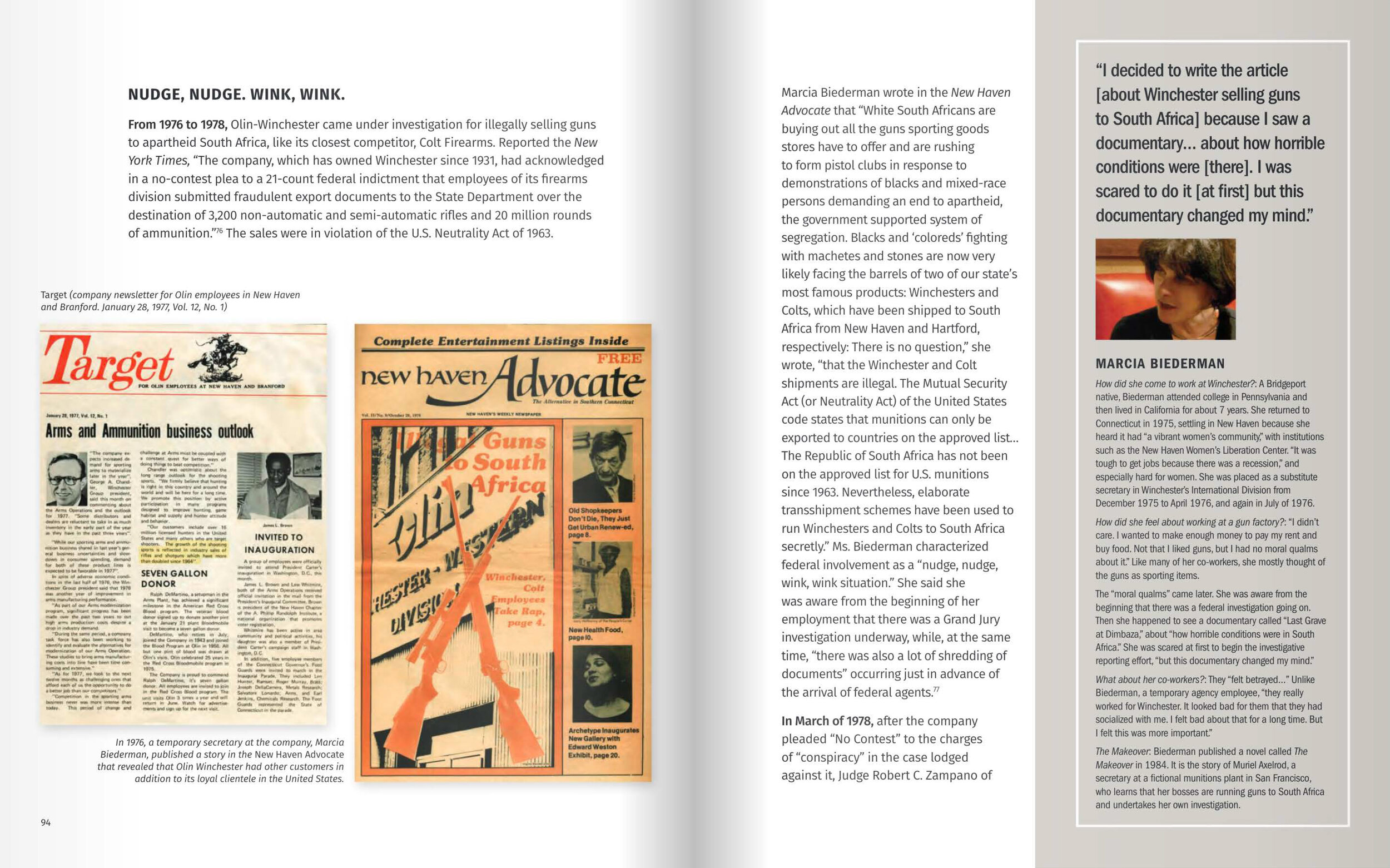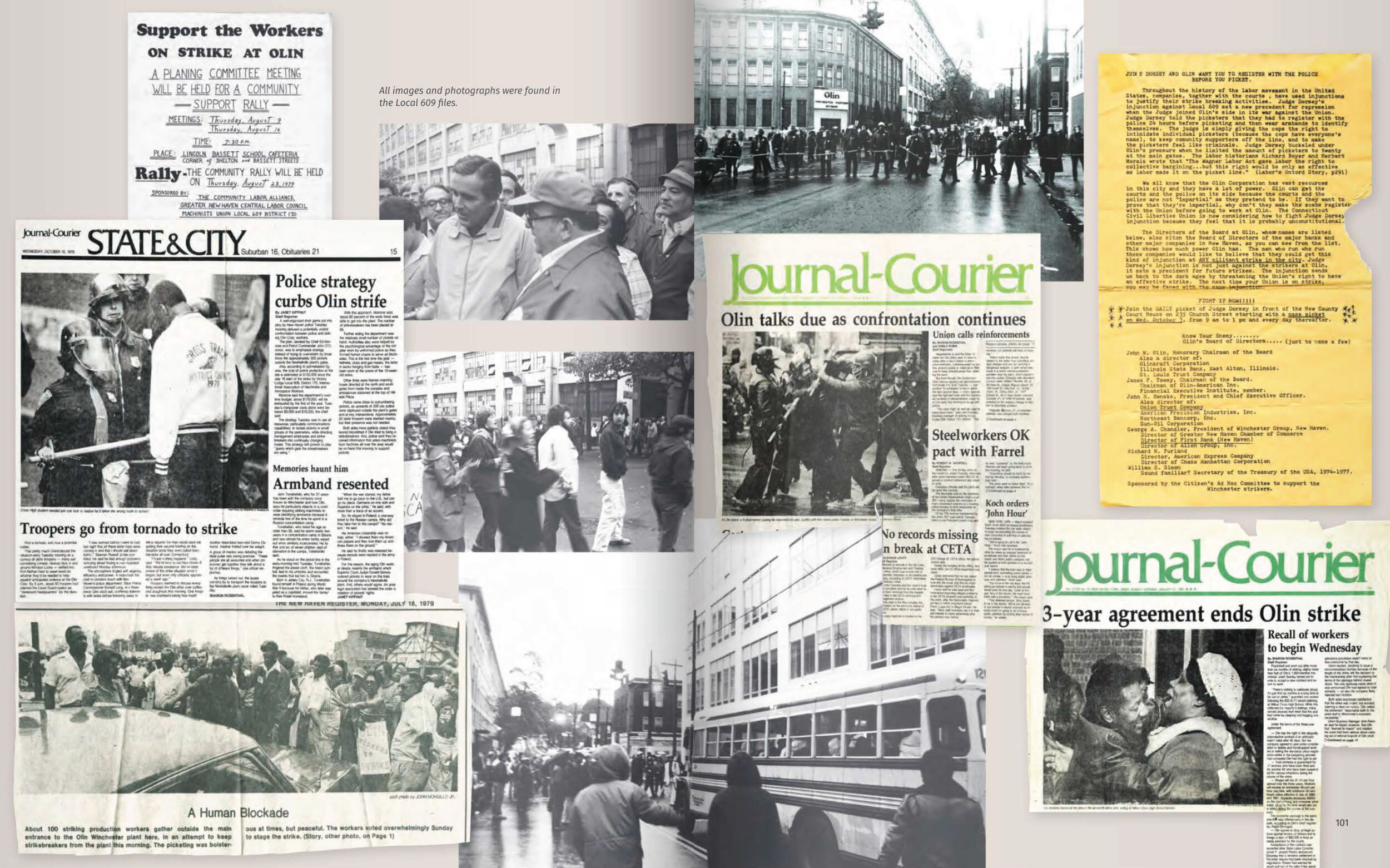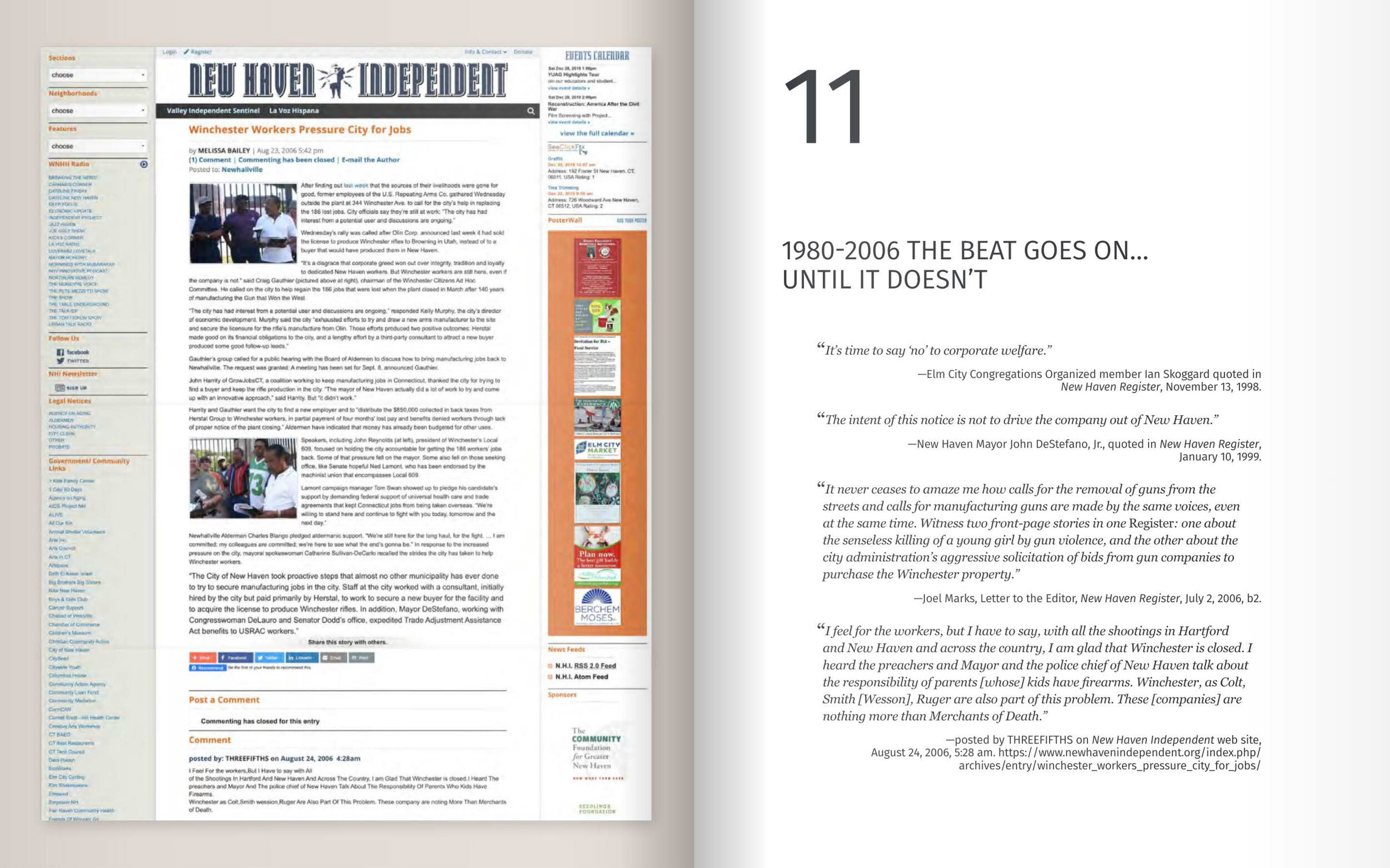Our Community at Winchester : The City and Its Workers at New Haven’s Gun Factory
by Joan Cavanagh
From the late 19th century through the early 21st, the Winchester Repeating Arms Company was an important employer in New Haven, Connecticut. The legendary guns it produced and their role in American expansionism at home and abroad were celebrated, largely uncritically, in movies, books, and songs. But the stories of those who worked there and of the company’s impact on its host community have received little attention.
The tale includes elements familiar to students of United States economic, social and labor history: workers’ struggles to win collective bargaining rights and to achieve equity in the work place across all job classifications, ages and ethnicities; relentless management efforts to divide them and prevent, then undermine, union representation; a ruthless company’s repeated threats to leave town in order to force union concessions and win economic incentives and tax abatements from city government; and the gentrified aftermath of the loss of working class jobs in an American city.
The story of New Haven’s experience — first documented as an exhibition of 40 panels —unfolds in Our Community at Winchester through interviews with former workers and their families as well as material from union newsletters, archival records, and city publications.
To purchase the book, contact the Labor History Association.
Case Laminate Hardcover: $38.99
Includes shipping and handling
8 x 10 in. (20.32 x 25.4 cm)
Full color bleed
170 pages
138 photos & ephemera
Imprint: OctoberWorks
ISBN: 978-1-7321801-5-4
BISAC: POL013000 [Political Science/Labor & Industrial Relations]; NHIS054000 [History/Social History]
DESIGN: Jeanne Criscola | Criscola Design
READ THE REVIEWS
New Haven Independent | Winchester’s Lost History Comes Alive by Paul Bass
Arts Paper | Library Lunch Talk Channels Winchester's Lost History by Liney Kindler
“Based on eight years of gathering oral history interviews, documents, and images by Winchester retirees and members of the neighboring community, Our Community at Winchester represents a high point in the involvement of workers and community members in uncovering and telling their own history. The interviews bring to life the intimate experiences and feelings of those who made up the Winchester workforce. The book combines scholarly background and deep community connection. It shows that ‘history from below’ has indeed come of age.”
“The plight of the Winchester gun factory and the community of workers whose lives centered around it has been one of New Haven’s great untold stories—until now. In Our Community at Winchester, the Greater New Haven Labor History Association has brought that story to life with all its nuances, contradictions, struggles, and humanity. The book falls within the true tradition of telling history from below; it will guide our understanding of our city’s heritage and its continuing challenges for generations to come.”
“Joan Cavanagh’s book stands apart from the typical industrial/corporate history that glorifies the millionaire owners, glosses over controversy, and ignores the workforce. Winchester’s rank-and-filers live and breathe between these pages. They define what we mean when we sing “Solidarity Forever.””
“This is an important book that retrieves a lost history of workplace struggle in the Elm City. Cavanagh is to be commended for an accessible, deeply researched study. In today’s polarized and increasingly unequal America, we need to hear the voices of the past that demanded a living wage and a sense of dignity.”

